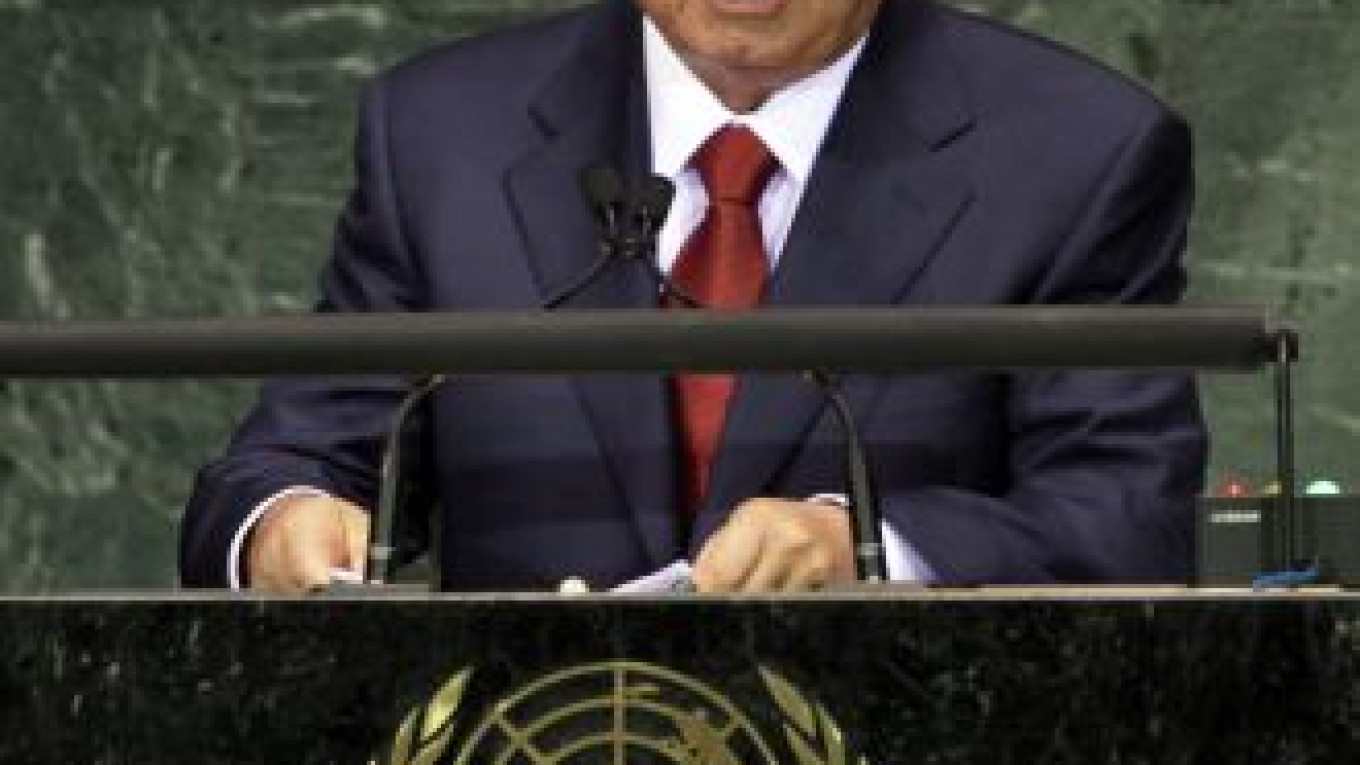UNITED NATIONS — Uzbek President Islam Karimov has called for an independent international investigation of the June ethnic violence in southern Kyrgyzstan that sent more than 100,000 refugees into his country.
In the text of remarks to a UN development summit, Karimov said such an investigation was the only way to promote reconciliation between the ethnic Kyrgyz and Uzbeks who each make up roughly half of the population in the south of Kyrgyzstan.
Nearly 400 people were killed in several days of violence, which began on June 10 and were triggered by attacks by unidentified people in balaclavas. Unofficial estimates place the death toll much higher. Many victims were shot and some, including women and children, were burned inside their homes.
Earlier this year, the New York-based Human Rights Watch nonprofit group said some Kyrgyz government troops took part in mob attacks against Uzbeks and that a brutal official probe into the violence was making matters worse.
In Kyrgyzstan, which hosts U.S. and Russian military air bases, the interim government has struggled to assert control over southern parts of the country since assuming power following a popular revolt in April.
"I am convinced that the timely holding of objective and independent international investigations which rule out any prejudice and one-sided approach … can pave the way to reconciliation and accord between the Kyrgyz and Uzbek minority in the south of Kyrgyzstan," Karimov said.
He said violence could erupt anew without such an investigation.
Karimov rejected calls for an international investigation into Uzbekistan's handling of a 2005 riot in the town of Andijan where, according to witnesses, government troops killed hundreds of protesters.
A Message from The Moscow Times:
Dear readers,
We are facing unprecedented challenges. Russia's Prosecutor General's Office has designated The Moscow Times as an "undesirable" organization, criminalizing our work and putting our staff at risk of prosecution. This follows our earlier unjust labeling as a "foreign agent."
These actions are direct attempts to silence independent journalism in Russia. The authorities claim our work "discredits the decisions of the Russian leadership." We see things differently: we strive to provide accurate, unbiased reporting on Russia.
We, the journalists of The Moscow Times, refuse to be silenced. But to continue our work, we need your help.
Your support, no matter how small, makes a world of difference. If you can, please support us monthly starting from just $2. It's quick to set up, and every contribution makes a significant impact.
By supporting The Moscow Times, you're defending open, independent journalism in the face of repression. Thank you for standing with us.
Remind me later.






